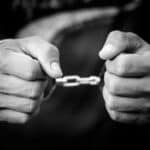Under the Sixth Amendment to the U.S. Constitution, defendants charged with crimes have the right to be represented by an attorney. This includes the right to an attorney provided by the court when a criminal defendant cannot afford a lawyer of their own. Court-appointed criminal lawyers are known as public defenders.
While the right to court-appointed counsel in criminal cases was implemented to ensure all accused individuals, regardless of income, can receive help and guidance when facing unfamiliar legal proceedings, it does not guarantee a public defender has the necessary experience, resources, or time to handle your case with the attention it needs. This is especially true in Florida, where public defender offices in Miami-Dade and other counties are vocal about limited resources and large caseloads.
A Broken System
Several studies have analyzed the shortcomings of the U.S. public defender system and how it falls short in leveling the playing field for the accused. Some important findings include:
- A 2009 study by the National Association of Criminal Defense lawyers found that public defenders devote very little time to cases. In New Orleans, for example, the study noted public defenders have on average only 7 minutes to prepare a defendant’s case before court.
- A study from the National Association for Law Placement showed lawyers at private law firms can earn over twice as much as public defenders. In Miami-Dade County, the starting salary for a public defender is $42,000, far below the median starting salary for new attorneys in the region.
- Public defender offices are consistently underfunded, according to 2009 research from a California Western School of Law Professor, particularly in comparison to funding for the prosecution. In California, the study noted that for every dollar spent on prosecutors, just 53 cents is spent on public defenders. With over 80% of defendants facing felony charges classified as indigent and in need of court-appointed counsel, criminal cases are commonly tipped in the prosecution’s favor.
These statistics highlight an unbalanced system that disproportionately affects low income individuals and favors the prosecution. In an effort to address some of these problems, researchers and legal experts have suggested changes that include decriminalization of certain minor offenses, expansion of diversion programs, and increased funding based on caseloads. Until a major overhaul can correct these shortcomings, however, anyone charged with a crime should understand the common differences between public defenders and private criminal defense lawyers.
Public Defender vs Private Defense Attorney
Partner John Hager has been immersed in the Florida criminal judicial system as both a prosecutor and defense attorney for nearly 20 years, and has seen first-hand the drawbacks of working with court-appointed counsel. As he sees it:
“Public Defenders are an integral part of our justice system, but many of them are overworked and underpaid. Often, they have high caseloads and do not have the time to devote to a client’s case. Most Public Defenders don’t even look at their client’s file until the day before court, but waiting until the first day in court could be too late to influence the case filers at the State Attorney’s Office to reduce or not file certain charges.
This is why the saying, “You get what you pay for” is all too true. Because you don’t pay for a public defender, you often don’t get that time and attention your case demands. At Hager & Schwartz, P.A., we fight for your case from the moment we are retained. We ensure our clients have superb representation and protect their rights throughout the entirety of their case – in some cases even before charges are filed.
That’s what sets us apart from the public defenders. We go above and beyond to make sure our clients are satisfied and that they have unfettered access to us.”
Unfortunately, the drawbacks Attorney Hager touches on can be real barriers to an effective defense. The most serious problems with public defenders include:
- Attention – Public defenders are overloaded with clients. For example, the Miami-Dade County Public Defender office alone handles over 75,000 cases each year. In addition to low starting wages, these factors mean public defenders often don’t have the ability or the willingness to give clients much attention, respond to concerns in a timely manner, or be detailed in their communication. As private defense attorneys, we make clients and personal attention top priorities. It’s why we’re available days, nights, and weekends.
- Time & Resources – Due to burdensome caseloads, public defenders often do not have the time needed to investigate, research, and work cases as thoroughly as possible. Limited funding also means defendants represented by a public defender may have limited opportunity to strengthen their defense using specialized testing, expert assistance, or other strategies that cost the state or county financially. Many clients who have tried to use a public defender or who have been represented by one in the past often voice complaints about being encouraged into quickly taking plea deals, an unfortunate product of too little time and resources.
- Experience – Public defender offices are often staffed by young and new attorneys just beginning their legal careers. While a lack of real-world experience doesn’t mean they are not competent or capable lawyers, it can mean public defenders may encounter cases or issues with which they have limited or no prior experience. At Hager & Schwartz, P.A., our attorneys leverage over 35 years of combined experience and careers as former Florida prosecutors when fighting for clients. Over the years, we’ve handled cases involving all types of crimes from both sides of the courtroom.
With a public defender system in disrepair, working with proven defense attorneys becomes all the more important to ensuring your case gets the attention it deserves. Unfortunately, money is often the primary reason defendants work with public defenders rather than private defense attorneys. However, by understanding the shortcomings of court-appointed counsel and what’s at stake in a case, individuals can better understand the importance of doing what it takes to retain private defense – whether that means working overtime, pooling money from loved ones, or working to split fees into more manageable payments when possible.
At Hager & Schwartz, P.A., we value the trust clients place in our team when hiring our firm, and we devote the time, resources, and experience needed to pursue positive resolutions. If you have questions regarding your case and how our firm may be able to help, contact us today for an immediate consultation.




